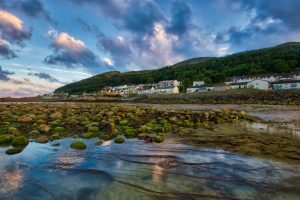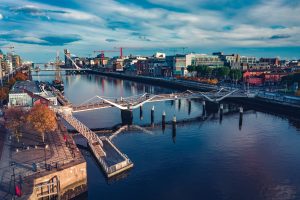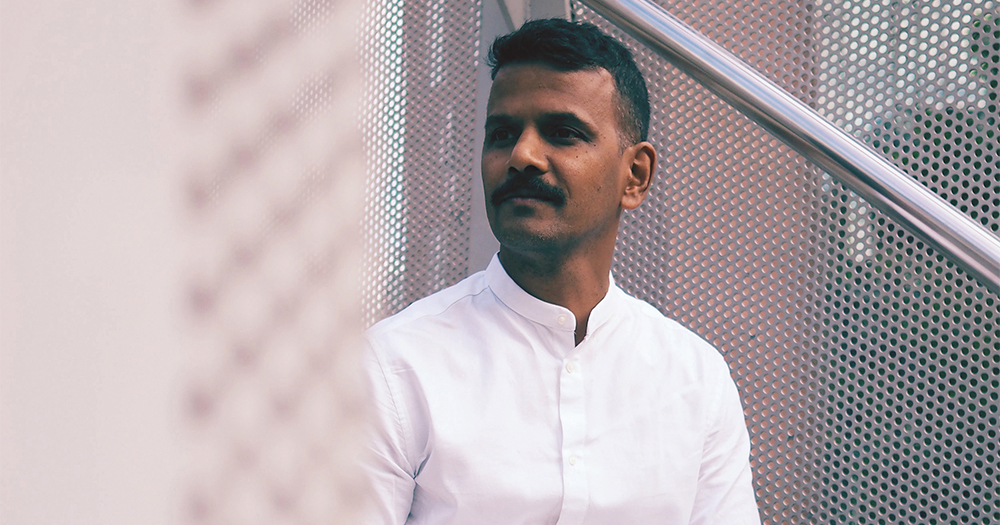Pradeep is a gay person from India living in Ireland for eight years. As part of a continuing series, he speaks to fellow LGBTQ+ Asian people living in Ireland discussing inclusion and diversity, sexual Racism, objectification, and mental health.
While searching for contributors to this interview series of Asian LGBTQ+ people now living in Ireland, I met an Asian lesbian woman through a friend. Speaking to her reminded me that everyone has a unique story to tell and our realities are plural. Living in Ireland for over 35 years, her family came here in the mid-‘80s when she was three years-old. She prefers to stay anonymous.
She first became involved in the queer scene in the ‘90s; “I started working in a gay club. There was maybe one other brown woman; other than that, Dublin’s LGBTQ+ scene was very homogeneous, and it was quite lonely at times. People had no idea about Pakistan as a country, so I had to blend in without my self-identity.”
Over time she built some great friendships, but there wasn’t much space for living her true self. The LGBTQ+ scene at that time was superficial from an inclusion and diversity perspective. “In the beginning, I often got sexual comments about my exotic look, regardless of knowing my ethnicity – mainly from gay men. It wasn’t always complimentary.” Now she senses a lot more diversity on the queer scene as more people of colour are now visible. “The younger generation of people of colour seems to have more solidarity, and we are all connecting through different community groups.”

She described the loneliness of growing up in a conservative Asian family with strict parents. “I have childhood memories of great food and family values taught by hard-working parents. But it’s hard for a child to understand and convey emotions, especially when living on the cusp of two distinct cultures. There was a time when people used to stop in the street to look at us because we were visibly different.” There was always a conflict between her conservative Asian upbringing and liberal Irish culture. “My family is aware of my sexuality, but they do not embrace it. I do my best to balance this dual reality.”
Overall, the Asian community is slowly getting rid of its colonial heteronormative brainwashing, but some Asian sub-communities have different realities. “It is frustrating, because my ancestral roots are in Punjab, where gender diversity is far more acceptable; it did not subscribe to colonial binary norms. I miss the opportunities of being entirely out. I carry this generational burden to keep myself close to the family.”
She described how back in the ‘80s and ‘90s, Ireland felt a lot friendlier than now, and that the racism she experiences currently didn’t seem as prevalent. “In the past five years; there has been a dangerous shift in displaying racism. Recently, I was verbally abused at my work by a man shouting, ‘go back home’. It is not the same Ireland I grew up in, and it saddens me.”
Although she has been happily married to her partner for almost six years, she shared, “I have never had the privilege of being 100 percent out because of my circumstances; it was a hurdle to build relationships.” Her message to the Asian LGBTQ+ community living in this country is that you have a valuable presence in Irish society – but never forget your roots and rich cultural background. Make your voice heard. Her message to the Irish LGBTQ+ community – keep evolving into a more welcoming place for everyone and remember that being able to be out is a privilege.

Oliver Chen is originally from Taiwan and now living in the beautiful Irish countryside. Oliver lived in Vancouver in 2012, which has a significant Asian LGBTQ+ community. That experience made him confident to explore himself and the world. Oliver fell in love with Wicklow National Park when it was depicted in the Hollywood movie PS I Love You and decided to visit. He arrived in Ireland back in May 2014 with a one-year working holiday visa and no contacts, but as they say, when there is hope, there is a way – he built his life here from scratch. Now Oliver is working as a chef and living in West Limerick with his husband, Thomas.
Oliver met Thomas through a gay dating app. “I was in Taiwan and looking for travel logistics advice to visit Ireland. He gave me some helpful tips. That was the beginning of our friendship. We met a few weeks after I arrived here. We travelled together, and he showed me around different cities. We became best friends. Over that period, the initial friendship blossomed into a meaningful relationship. After knowing each other for over three years, we got married four years ago. We were 6000 miles away from each other, but we meant to be together.”
Oliver’s family welcomed them both with open arms when they visited Taiwan together. When they decided to live in rural Ireland, they were worried about people’s reactions. It was a difficult time for Oliver, “but I think what matters most is that we are happy together. I keep telling myself, live your life on your terms.”
Oliver experienced curiosity about him from the local community. “My main challenge is to make friends, build a support system, and meet new people. Thomas and I overheard people talk about us behind our backs, making us feel less social in the local area. We try to make sure that it won’t affect our daily lives. We travel around a lot to different cities in Ireland and often meet friends in other towns.”
Oliver told me about his participation in the Taiwan Ireland Association (TIA), where they organised a charity event to support the local community and local businesses. Because of the job’s nature, he speaks to a lot of people every day. “I talk with them about my life in Ireland; most people are happy to know I am living with my husband. The sense of acceptance makes me feel content. Ireland is getting more understanding; the younger generation especially has more tolerance of the LGBTQ+ community.”

Originally from India, S Kanth has been living in Ireland for over four years. He arrived here in 2015 to study for a masters, and now he works as a business consultant in Dublin. He hailed his land of origin as “a diverse country where a broad spectrum of gender identities were celebrated in ancient times.” He described how toxic masculinity came in with the colonial era, and many gay men were forced to live a double life. He shared, however, that “things are getting better; in 2018, India’s Supreme Court struck down a colonial law that criminalised homosexuality.”
Most LGBTQ+ Asian immigrants who come to Europe find the scene a lot more open. Kanth has a similar outlook – “I was thrilled to see gay pubs, drag queens, straight people hanging out with their gay friends, and gay people kissing in restaurants.” But he found himself ‘othered’ by many on the gay scene. “A guy who hooks up in private or sends you unsolicited pictures on Grindr would be reluctant to see you in public.”
I asked him what makes him feel unwelcome on the gay scene in Dublin. “I think socialising is more difficult because of cultural differences. We Indians come in many different colours, shapes, and sizes… So, although not always because of skin colour, there are racial prejudices many of us face due to cultural ignorance, having a bit of a heavy Indian accent, and a distinct fashion sense. The gay pubs here try to be inclusive and diverse, but I am yet to dance to Bollywood music in an Irish gay club.”
Kanth continues, “I am coming from a society where interpersonal relationships are more profound on an emotional and physical level. In contrast, how gay men interact here in Ireland, in person or on dating apps is distinct. A typical chat could open with ‘now?’, ‘into?’, ‘accom?’ or even unsolicited personal pictures without even a ‘hi’.” In the gay community, like any other, prejudices exist. People choose to see only one side of an immigrant’s personality and expect them to stick to a role or play a type. These undue pressures are daunting and have a long-lasting impact on psychological health.
Kanth and I talked about the sense of equality and equal opportunities. Immigrants bring diversity, knowledge that contributes to the creation of rich cosmopolitan culture and wealth. However, there are multiple glass ceilings and bubbles that separate immigrants from native Irish people. From jobs to housing, there are many unspoken issues that immigrants face in everyday life. Kanth gave the example, “For instance, Indians are mostly seen as people who write software codes, eat curry, work as doctors and nurses, or drive taxis. It is a rarity for people of colour to be offered strategic decision-making positions in the workplace or the romantic partner role in private life. The LGBTQ+ community is a microcosm of society. It inherits the inequality that results in immense pressure on the immigrants who struggle to find meaningful relationships, equality, and security.”
This article originally appeared in GCN Issue 365, you can find more of Pradeep’s interviews with LGBTQ+ Asian people in Ireland here.
© 2020 GCN (Gay Community News). All rights reserved.
Support GCN
GCN is a free, vital resource for Ireland’s LGBTQ+ community since 1988.
GCN is a trading name of National LGBT Federation CLG, a registered charity - Charity Number: 20034580.
GCN relies on the generous support of the community and allies to sustain the crucial work that we do. Producing GCN is costly, and, in an industry which has been hugely impacted by rising costs, we need your support to help sustain and grow this vital resource.
Supporting GCN for as little as €1.99 per month will help us continue our work as Ireland’s free, independent LGBTQ+ media.
